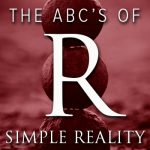
That change that we call revolution is “relative” change in that it occurs within the context of P-B and hence has all the characteristics and limitations of that unconscious and unsustainable narrative. For example, let’s take the women’s movement. After forty years as a journalist, Ellen Goodman, in her last column looked back at the changes that had occurred for women in the United States during that time. In her piece she admitted that women had come a long way but there seemed to be limitations. Those limitations are, of course, the limitations of a flawed worldview and a dysfunctional identity.
“It turned out that it was easier to kick down the doors than to change society. It was easier to fit into traditional male life patterns than to change those patterns. We’ve had more luck winning the equal right to 70-hour weeks than we’ve had selling the equal value of care-giving.”[i] The struggle for equal rights for women has run up against the reality of the false-self survival strategy which puts a higher priority on materialism, pleasure and power than on compassion and fairness.
“As a young mother and reporter, it did not occur to me that my daughter would face the same conflicts of work and family. Or, on the other hand, that my son-in-law would fully share those conflicts. I did not expect that over two-thirds of mothers would be in the workforce before we had enough child care or sick pay.”[ii]
Revolutions will come and go but the fundamental human experience will not change until we embrace the choice of Simple Reality as the foundation on which we will build our human society.
[i] Goodman, Ellen. “We’ve come a long way.” The Denver Post. December 27, 2009, p. 5D.
[ii] Ibid.


